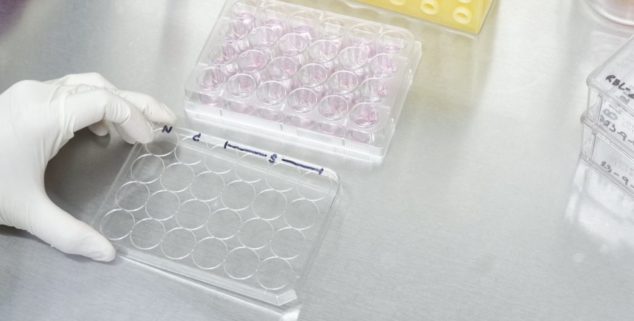News
Trump action on fetal tissue research affects California
 Cell research in a laboratory. (Photo: SBshot87, via Shutterstock)
Cell research in a laboratory. (Photo: SBshot87, via Shutterstock)President Trump has sharply cut back on federal funding for fetal tissue research in a move denounced as both politically motivated and destructive of the hopes of millions of Americans suffering from life-threatening diseases.
The action on Wednesday has long been sought by anti-abortion activists who say tax dollars should not go to create a “marketplace for aborted baby parts.”
Trump’s move mmediately cost UC San Francisco a $2 million grant aimed at new therapies for HIV. It also drew reaction from California’s $3 billion stem cell agency.
Asked for a comment, Kevin McCormack, senior director of communications, said the Trump action will not have any impact on the agency. He said in an email, “Because our money comes from California this does not affect any project we fund or our ability to fund any projects.”
Trump’s action echoes a situation that played a major role in the ballot initiative campaign of 2004 that created the stem cell agency, known formally as the California Institute for Regenerative Medicine (CIRM).
In one of their key arguments, backers of the stem cell measure said it was needed because of then President Bush’s restrictions on federal funding for human embryonic stem cell research.
Today’s action by Trump is virtually certain to be cited as justification for an additional $5 billion for the agency, which will run out of money for new awards around the end of this year. CIRM supporters expect to mount another ballot initiative in November 2020.
The scope of Trump’s move was described by the New York Times,
“As of last year, the N.I.H. spent about $100 million of its $37 billion annual budget on research projects iknvolving fetal tissue, the Times reported. “The tissue is used to test drugs, develop vaccines and study cancer, AIDS, Parkinson’s disease, birth defects, blindness and other disorders. For much of that work, scientists say there is no substitute for fetal tissue.”
Sam Hawgood, chancellor of UC San Francisco and a former member of CIRM’s governing board, said in a statement that the decision was “politically motivated, shortsighted and not based on sound science.”
Lawrence O. Gostin, a professor specializing in public health law at Georgetown University, told the New York Times that the federal action “is akin to a ban on hope for millions of Americans suffering from life-threatening and debilitating diseases.”
Scientist Jeanne Loring, who is with Scripps Research and Aspen Neuroscience in the San Diego area, said in response to a query:
“Fetal brain tissue transplants containing immature dopamine neurons laid the groundwork for the Parkinson’s disease neuron replacement therapy we are developing now The outcomes were inconsistent, but some patients recovered from the disease. Without that pioneering work in the 1990s, I wouldn’t be so confident about the potential of our planned therapy using dopamine neurons derived from Parkinson’s patients’ own induced pluripotent stem cells.
“This is one specific instance of how fetal tissue profoundly changed our view of degenerative disease. I think that going forward, most of the regenerative therapies will be based on pluripotent stem cells, which weren’t available 30 years ago. But I don’t like to rule out the possibility that there is still pioneering work like this to be done, and so I hope that some researchers will not lose access to fetal tissue for groundbreaking medical research.”
—
Editor’s Note:David Jensen is a retired newsman who has followed the affairs of the $3 billion California stem cell agency since 2005 via his blog, the California Stem Cell Report,where this story first appeared. He has published more than 4,000 items on California stem cell matters.
Want to see more stories like this? Sign up for The Roundup, the free daily newsletter about California politics from the editors of Capitol Weekly. Stay up to date on the news you need to know.
Sign up below, then look for a confirmation email in your inbox.

[…] — MILLIONS AT STAKE: “Trump action on fetal tissue research affects California,’’ via Capitol Weekly’s David Jensen: “Trump’s move immediately cost UC San Francisco a $2 million grant aimed at new therapies for HIV. It also drew reaction from California’s $3 billion stem cell agency.” Story. […]